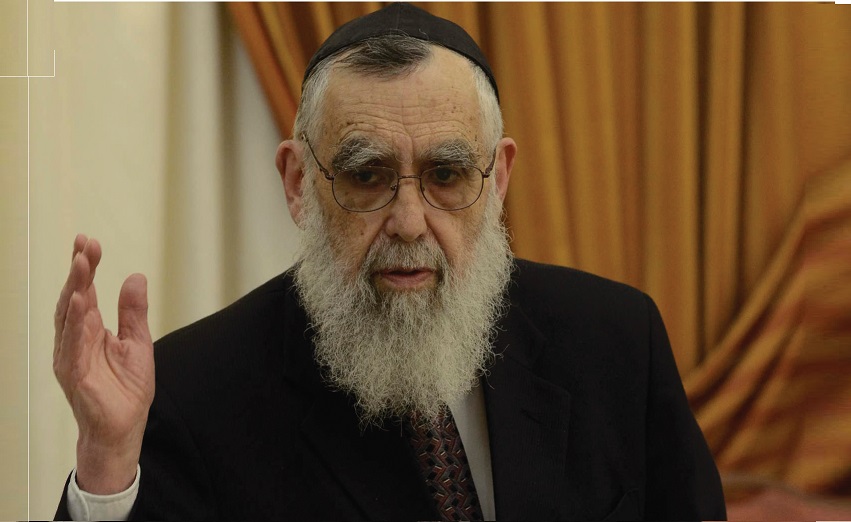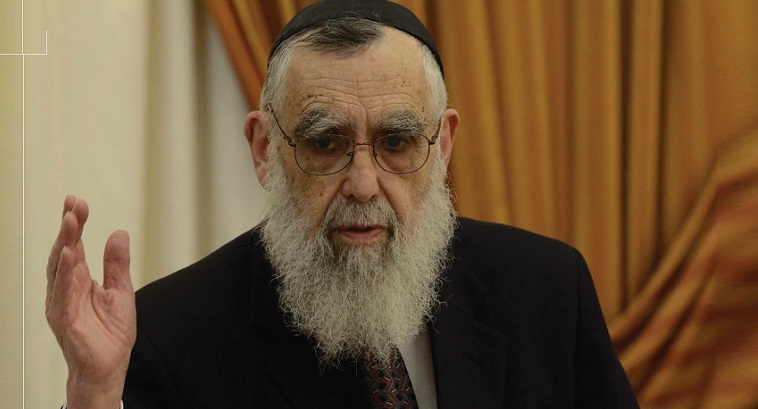Hide and Seek

The pandemic hovers over us. It is a wakeup call for serious repentance, serious prayer, serious tzedakah
F
amous Jewish parable: Children playing hide-and-seek. One child in corner is weeping. Why are you crying? Because when I hide, no one comes looking for me.
Where will we have the Purim seudah this year? With or without corona masks? With or without family? These and many other concerns — Purim this year occurring on a Friday, necessitating the Purim seudah before the Shabbos seudah, intertwined with sending mishloach manos, hearing the Megillah, giving matanos l’evyonim, trying to fulfill ad delo yada properly, all while preparing for Shabbos — threaten to obscure the underlying message of Purim.
For Jerusalem and other Biblical walled cities like Jaffa, Tzefas, and Chevron, the busyness is magnified by this year’s Purim Meshulash, “triple Purim,” with Megillah reading Thursday night and Friday morning, al hanissim on Shabbos, and mishloach manos and seudah dinner on Sunday (see Esther 9:18). With all of this swirling through the atmosphere, the essence of Purim might easily fade away.
Purim is the quintessential neis nistar, hidden miracle, unlike Chanukah and its long-lasting cruse of oil, which is the epitome of neis nigleh, open miracle. The Purim story covers about a decade, from the lavish celebration at the beginning of Megillas Esther until the redemption at its end. Because of this stretch of time, one can easily overlook the hand of G-d that was orchestrating the “coincidences” that mark the story.
It was a time of hester panim, G-d hiding His face, and the ship of the world seemed to be without a Captain. The very name “Esther” itself suggests the Hebrew word for concealment: hester.
In today’s Covid pandemic we also seem to be experiencing hester panim. We yearn for an open miracle that would make the virus disappear so that we can resume our interrupted lives, but we are apparently not yet worthy of nissim gelu’im. Beneath the worldwide suffering, something highly significant is taking place, but we know not precisely what. No mortal is privy to His plans; “Lo machshevosai machshevoseichem — My thoughts are not your thoughts, nor are your ways My ways” (Yeshayahu 55:8).
But just as He was in the Purim adventure, so is He present here in our universal dislocation. All of this is clearly part of His Divine plan, hidden and unseen. G-d is concealed behind His own heavenly mask, so to speak, and seems to be maintaining distance from His world, though an occasional shaft of light, such as the vaccine, shines forth. Our task is to uncover the Divine mask and reduce the distance between us and our concealed Creator.
This is what the Jews of Persia did. “Kiyemu v’kiblu,” says Megillas Esther (9:27), “they fulfilled and accepted.” They now willingly reaccepted the Torah — which they originally had accepted under duress. (Because Mount Sinai hovering overhead threatened to obliterate them if they refused. See Shabbos 87a.)
Beyond the mishloach manos and the food and drink, our perennial task is to accept the Torah again, to commit ourselves to it willingly and with love. How? By implementing the time-tested prescription for dealing with difficulties and apprehensions: “Teshuvah, tefillah, and tzedakah mitigate the severity of the decree.” The pandemic hovers over us. It is a wakeup call for serious repentance, serious prayer, serious tzedakah.
By so doing, we will not only close the distance between us and our Creator, but also deliver a resounding rebuke to today’s Hamans and their recent upsurge of anti-Semitism. Their irrational hatred of Jews is codified in Haman’s declaration that Jews have “religious practices different from every nation” and that therefore we should be exterminated. (As a rationale for genocide, this is on the surface quite illogical, though hatred needs no logic. See our forthcoming column for an explication of this.) By reaffirming our unique Jewishness, we both defy and show our disdain for Haman and his contemporary Jew-hating acolytes.
“Mishenichnas Adar marbin b’simchah — when Adar commences, we increase simchah”(Taanis 26b). Simchah is something that emanates from deep within the Jewish soul; it does not stem from frivolity or vacuous “fun and games.” These might engender a smile or chuckle, but they are not Jewish simchah.
For a Jew, there is no greater simchah than knowing that although G-d seems hidden, He is still by our side now just as He was then in the Purim story. He is in His hester panim mode, but He has been with us all the time, patiently waiting, and waiting, and waiting for us to find Him.
If we do not search for Him, the Divine disappointment is deep. But once we reconnect, we will merit a genuine simchas chayim and simchas Purim — and this year especially, a simchah meshuleshes, a triple pandemic of joy. —
(Originally featured in Mishpacha, Issue 850)
Oops! We could not locate your form.




